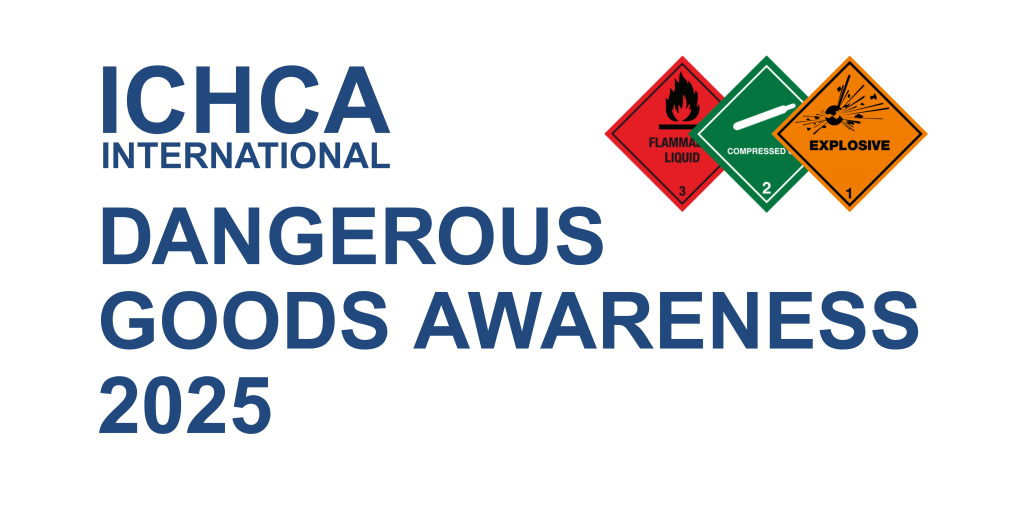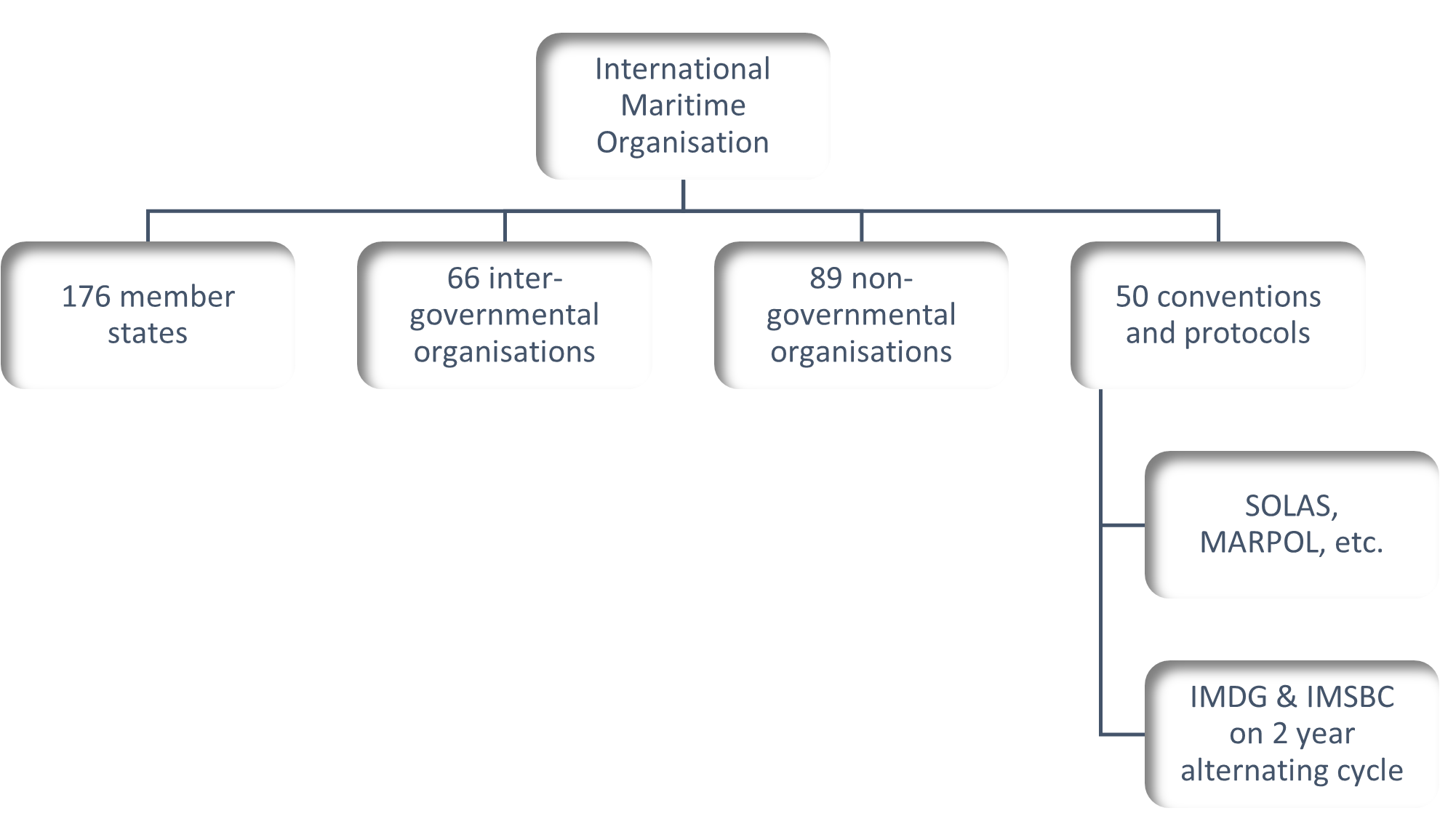Day 2 – How the International Maritime Organisation’s amendment cycle continuously updates the IMDG Code

| The IMO brings together 176 member states, 66 intergovernmental organisations and 89 non-governmental organisations, addressing 50 conventions and protocols. These include but are not limited to the International Convention for the Safety of Life at Sea[1] (SOLAS), The International Convention for the Prevention of Pollution from Ships (MARPOL), the International Maritime Solid Bulk Cargoes (IMSBC) Code and the International Maritime Dangerous Goods (IMDG) Code. |

| IMDG and IMSBC are continually being updated and IMO has a standing programme alternating priority; one year for IMDG and the next for IMSBC. The work is governed through the rules of the IMO and the work of its Maritime Safety Committee and IMO Council. |
| There are several sub-committees addressing different safety and environmental matters with some overlapping work. But for IMDG the lead is Carriage of Cargo and Containers (CCC). |

| A meeting of CCC will typically field over 100 papers of varying length and topic. On top of those, delegates will encounter many additional working papers. |
| Documents containing more than 6 pages of text are considered ‘bulky documents’ and have to be submitted at least 13 weeks before the start of the meeting. Non-bulky documents have to be received no later than 9 weeks before the meeting. |
| The leadership work takes place in the main plenary hall, an impressive space capable of seating around 740 delegates. It also has overhead booths for translators providing real time Arabic, Chinese, English, French, Russian and Spanish translation. |
| The detailed work is undertaken by groups of experts and representatives in committee rooms under volunteer chairs ably supported by the IMO secretariat. This is often where the detail is wrung out, reviewed explored and negotiated. Typically for a Monday to Friday meeting, conclusions, drafts and recommendations have to be delivered by the close of Wednesday so that translation can be done on Thursday in time for action in the main plenary hall on Friday. |
| If we take a new idea for an IMDG Code amendment, perhaps introduced and passed forward at CCC 8 in September 2022, the next likely step was the Editorial and Technical meeting where experts work on drafting. However 2022 was an IMSBC priority year, so it might well have been March 2023 (E&T 38) when it was first addressed. |

|
||||
|
|
||||
|
